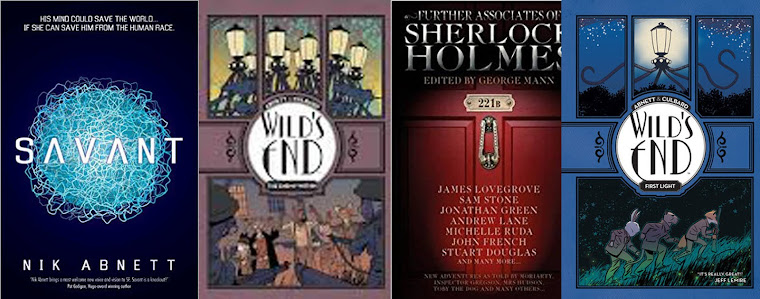I love newspaper articles that start with those words, or with words like them.
For one thing, I like to know what money is being spent on in our education establishments, and for another, I like to know what our lovely academics are hyposthesising about, because it seems to me that nine times out of ten, they’re trying to prove what anyone with an ounce of common sense has already deduced, not that those things aren't worth verifying, you understand.
I read an article that started like this in the weekend papers. Apparently, a lively little band at Liverpool university has proven that reading Shakespeare lights up the brain, but reading the work ‘in translation’ doesn’t have the same effect.
First of all, I must take issue with that expression, ‘in translation’. Shakespeare wrote in English, for crying out loud, and suggesting otherwise is misleading. It makes it appear as if Shakespeare’s work is somehow alien, doesn’t belong to us, isn’t something we can identify or empathise with. If we start saying that, our kids will have even more trouble studying it than they already do, and, let’s face it, plenty of them struggle with it more than perhaps they ought. By ‘translation’, the article meant re-written in straightforward, contemporary English.
As I understand it, what those nice people at Liverpool University are suggesting is that if you dumb down Shakespeare the neurological and possibly the intellectual response you’ll get will also be dumbed down. I’m tempted to think that this stands to reason.
The more you stimulate the brain, the more it will work to assimilate, to understand, to respond to the challenges that you offer it. The harder the brain works, the more neural pathways are set up. Of course, it’s a good idea to offer those challenges in a sensible order. For example, you might want to teach a child to read, and then build up its reading and comprehension age before offering it the challenge of Shakespeare, because it’s probably going to be too much for your average seven year old.
Naturally, that doesn’t mean that Shakespeare should be considered too difficult. Some people might never respond well to the challenge, some might not want to, but that’s no reason not to expect everyone in school to have a crack at it, because we all benefit from growth in the minds that are stimulated and the greater understanding they reach when offered more challenging material.
There has been a tendency in our learning environments to offer material that is more accessible to a wider range of abilities, and I believe that’s a mistake. I believe that we should have a broader ranger of expectations and deliver a broader range of material. Of course we should not leave anyone behind in our education system, but that includes the more able and the more motivated. We must stretch those minds at the top of the curve. We mustn’t let them languish.
The brightest and the most able have special needs too, the kinds of special needs that Einstein and Churchill and Picasso had, the kinds of special needs that the great and the good, the powerful and the brilliant have always had. They need to be nurtured perhaps more than ever, and, right now, I wonder if our system is doing that as well as it might.

I would say no, the system is not challenging them. Not with mixed sets where the err, lower ability kids (I could use so many other words, believe me) are mixed in with the high achievers so that they can 'piggyback' on their talent and boost grades.
ReplyDeleteWhatever genius came up with that needs to go back to school, literally, and get to know modern children.
What ends up happening in mixed sets is that the disruptive pupils distract the teachers, which means everyone else's learning suffers, and it just makes it a hell of a lot more difficult for the high achievers to, well, achieve.
Just thought I'd post my probably rather individual insight, as a 16 year old. :)